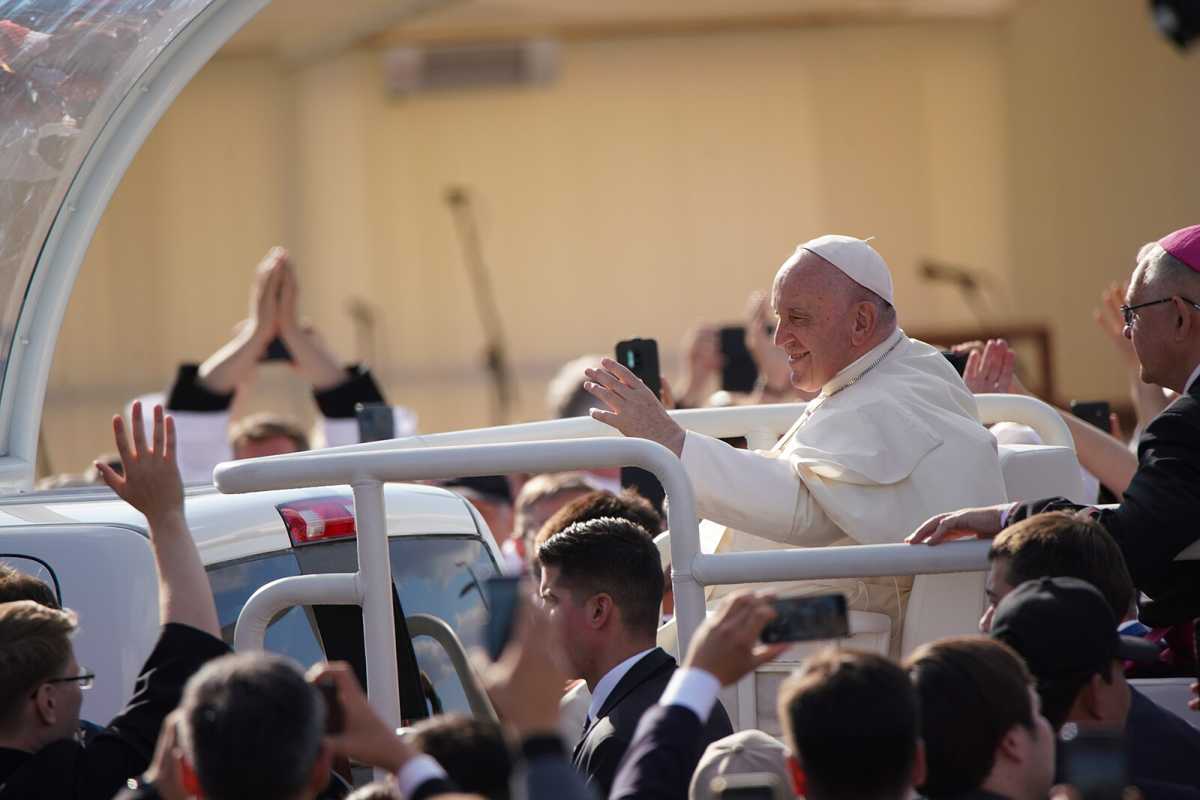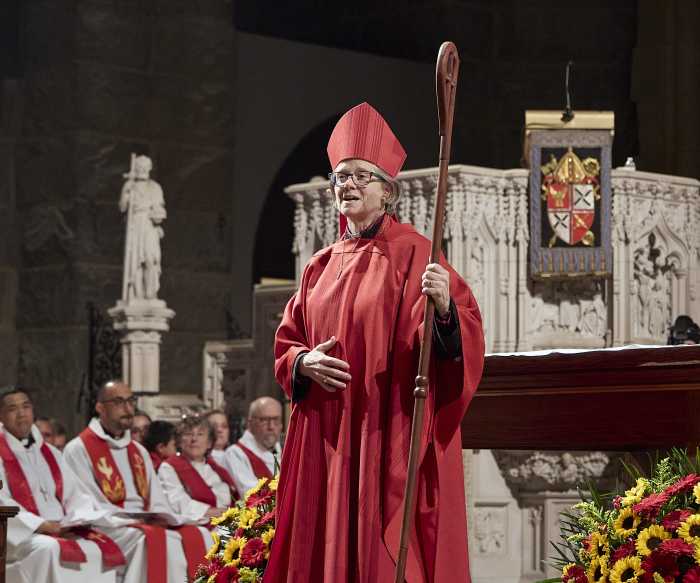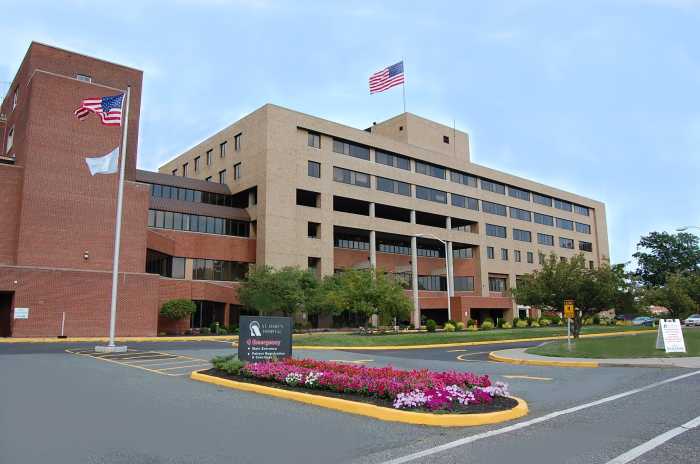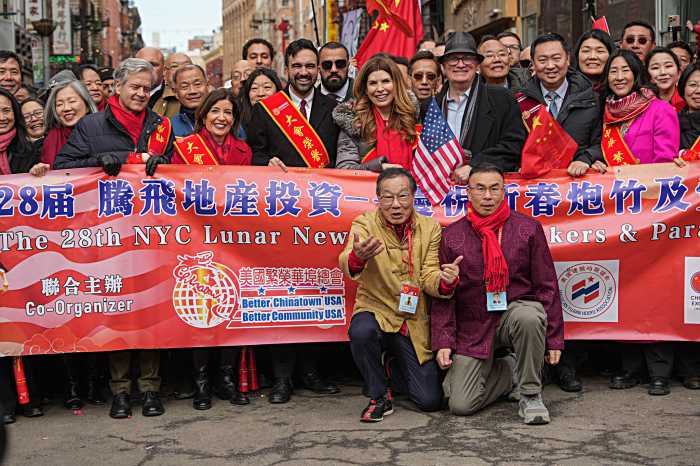The late Pope Francis’ predecessor, Benedict XVI, was the author of Catholic teaching that gay people were “objectively disordered,” that homosexuality was “an intrinsic moral evil,” and that when gay activists advocated for equal rights, “neither the Church nor society should be surprised when … irrational and violent reactions increase.” When it came to gay people, Benedict was malevolence incarnate.
When Francis became Pope in 2013, he changed the tone. Asked about the acceptability of gay priests, he delivered the most famous quote of his tenure: “If someone is gay and he searches for the Lord and has good will, who am I to judge?” It led people around the world to believe that he accepted gay people and that he would be different. But it was really an empty, evasive formulation. Official church teaching on homosexuality never changed one iota during his 12-year papacy. And he never really stood up for gay people in the church or society in substantial ways. (He did once call for the decriminalization of gay sex worldwide, but while homosexual acts remained “sin,” voting to keep them a crime was never said by him to be one.)
Gay priests? There are precious few worldwide who are open and self-affirming. Gay men are said to make up a significant share of Catholic clergy and it has been estimated that those who work in the Curia that run the Vatican are 80% homosexual. But they are virtually all firmly in the closet because that is how they maintain their status and power.
Women priests? To state the obvious, there are none, and Francis was opposed not just to women priests but to their inclusion as deacons, a lesser ministry. He added a woman or two to sit on some Vatican commissions, but in 2025 Roman Catholicism remains a deeply misogynistic religion whose hierarchs and decision-makers are all men.
When the all-male group of Cardinals — most of them appointed by Francis — meet to pick a new Pope, he will be a Catholic male. He doesn’t even have to be a priest, though he will almost surely be a Cardinal. He does have to have a penis in order to “resemble Jesus,” in the church’s phrase used to exclude women, though we can all think of a lot of more important requirements for someone to have in order to preside over 1.3 billion Catholics.
LGBTQ employees in Catholic churches and parish schools? Many have them, but when they come out publicly — usually because they marry their same-sex partners and are open about it or someone rats on them — they are fired. They may enjoy support from parishioners, students, and even their pastors, which is encouraging, but then the local bishop steps in (particularly in the US) and demands that they be fired. Pope Who-Am-I-to-Judge never lifted a finger to stop these firings. Not once.
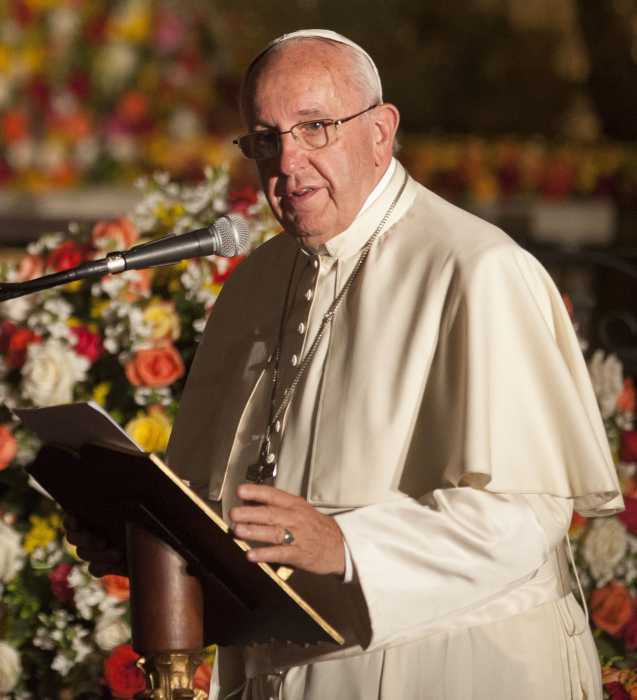
Despite Francis’ humble ways and general emphasis on welcoming everyone over scolding and condemnation, virtually everything he did and said was in the service of propping up an institution and its all-male system of governance. Yes, he had brief meetings with a few LGBTQ Catholic activists and allies late in his papacy. And he appointed bishops and Cardinals who were less openly homophobic. Even these small steps enraged the Catholic far right that wants a return to the strictness of Benedict. But none of these steps added up to any kind of affirmation of gay love or full inclusion of openly LGBTQ people in the church because he knew that to do so would jeopardize his grip on power — certainly in the more reactionary Catholic Church in the developing world, where Catholicism is growing, but also in the United States, where there have been Catholic bishops with whom he has tangled over their extreme conservatism.
Yes, he dined with transgender people and even said they should not be denied the church’s sacraments. But he also compared what he called “gender ideology” to “nuclear war” and insisted that trans identity “does not recognize the order of creation.”
And while his public pronouncements on LGBTQ people were usually crafted so as not to offend liberal sensibilities, behind the scenes he could be openly homophobic. He complained about a “stream of corruption” in the Curia with “a gay lobby” that he wanted to root out. In 2016, he approved a document banning gay men from seminaries and ordination. In a meeting just last year he complained about “faggotry” as a problem in seminaries — and repeated the slur shortly thereafter. He never publicly apologized. He let a Vatican spokesperson do it for him.
As Archbishop of Buenos Aires, he vigorously opposed the movement to legalize same-sex marriage — even telling a group of nuns the prospect was “Satanic.” When he saw he was about to lose his argument, he pleaded with the government to adopt civil unions rather than opening marriage to gay couples. He lost, but his late-breaking “support” for civil unions was nevertheless taken by many as a sign of his liberalism, even though it was nothing but calculation.
As a result of his continued opposition to gay and women priests, the men attracted to the priesthood today are much more conservative doctrinally and politically than those who became priests in Francis’ youth, when things such as Liberation Theology and progressive activism were much more in vogue in his church.
You could say Francis was a man with humane instincts — for the poor, the oppressed, migrants, and those ravaged by this planet’s incessant wars and environmental despoliation — trapped in an often inhumane institution. However, as its leader, he perpetuated its homophobia and transphobia while trying to sound more welcoming. If you listened carefully to his “welcomes,” they were about accepting LGBTQ people as people and trying to keep them in the fold — even “blessing” them if a priest wanted to — but welcome to what? To full and open membership as equals or as sinners who he wanted to keep close to the sacraments and Catholic “truth” that might save them from damnation? As Frank Bruni wrote in the NY Times, “He gave me and many other gay people hope. Then he reminded us of why we never look to his church for our dignity.”
As trans activist Alyssa Harley wrote on Facebook, “He disparaged trans people. For me he was a dangerous political leader whom others loved but who despised me. His danger to me was built on all that affection he was given.”
Francis was deeply mourned by many for his genuine social concerns and approachable manner. But at root, the embrace of a Holy Father — and a God the Father for that matter — can hardly be called mature. It speaks to an atavistic desire to be taken care of by Daddy — odd for a religion that is supposed to worship a man, Jesus, who treated his followers as brothers and sisters. This kind of immaturity is clearly not limited to the Catholic Church. People all over the world embrace “strong men” — dictators from Putin to Xi to Orban to our own wannabe dictator Donald J. Trump — who they hope will bring order to a chaotic world. It is a retreat from governing ourselves and taking responsibility for making the world a better place as equals. It bred an institution in the Church more famous for the clerical abuse of children than for embodying the spirit of their Christ. Yet still people cling to it not questioning whether its secretive, top-down governance structure just might be the source of its scandals.
Do not expect a better successor to Francis, though whoever is voted in will be hailed as a choice inspired by their Holy Spirit — not the politics of maintaining the institution.
The Cardinals may very well go with the affable Cardinal Luis Antonio Tagle of the Philippines, who is seen as having Francis’ common touch. In 2019 he called upon Catholic youth to cease mistreating LGBTQ people — instead exhorting them to use “your vocation, your talents, and your uniqueness… for the greater glory of God, not against other people or society.” Nice words. But he is insistent that homosexual relations are “sin” and has even campaigned against contraception and sex education in schools. He or a successor like him may keep the door ajar to the church, but will never alter its essentially discriminatory architecture.

